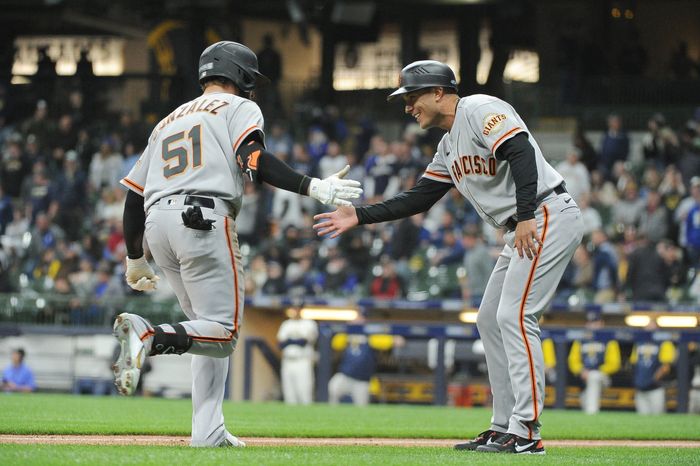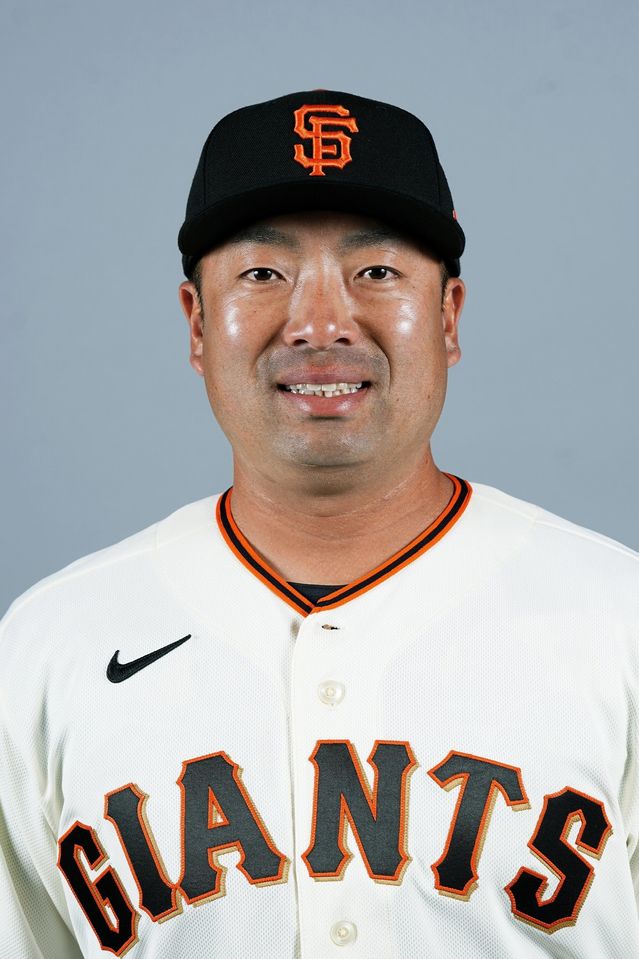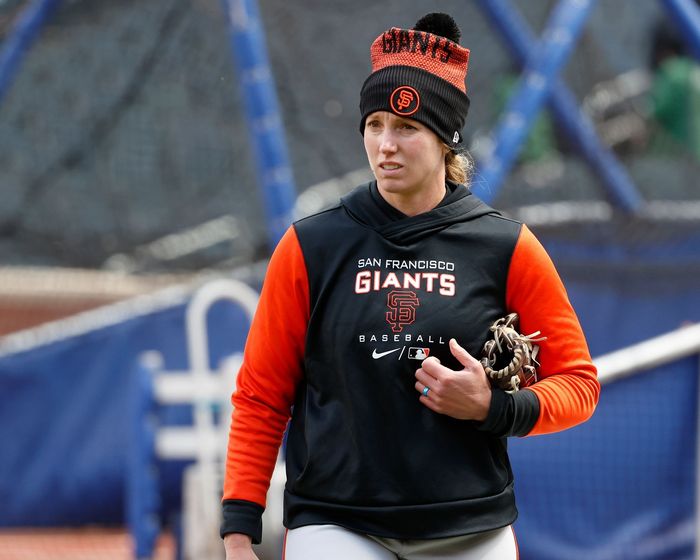Fernando Perez studied creative writing at Columbia University and is the author of essays that have been published in prominent literary magazines. Mark Hallberg spent years working as a teacher and administrator at schools in Saudi Arabia and the United Arab Emirates. Dustin Lind has a doctorate in physical therapy.
These are a few of the people on the unconventional coaching staff who have helped transform the San Francisco Giants into a powerhouse and disrupted a sport that traditionally hasn’t taken well to outsiders. The Giants were the surprise of the National League last season, winning 107 games and ending the Los Angeles Dodgers’ streak of eight consecutive division titles. It’s been more of the same early in 2022, with San Francisco again looking like a serious World Series contender.
The Giants accomplished all of this while being guided by a group of coaches unlike any other in the history of baseball—and their unexpected success is forcing the industry to rethink just who is qualified to wear a major-league uniform.
“We hire a staff with the mind-set that a more diverse coaching staff gives us a better chance to win,” Giants manager Gabe Kapler said. “If you want to have a wide variety of human beings for players to connect with, you can’t have them all cut from the same cloth.”
That way of thinking would’ve been considered radical for much of the last 150 years. Conventional wisdom has long dictated that in order for a coach to gain the respect of players, he needed to have professional playing experience. “The longer you were around,” veteran pitcher Alex Wood said, “the more credibility you had.”
To Kapler, that attitude never made much sense, especially in the era of analytics. The data revolution that has changed the game has largely been driven by outsiders in the front office, so bringing people with unorthodox backgrounds into the clubhouse seemed like a natural progression.
When Kapler became the Giants’ manager in November 2019 after two middling seasons at the helm of the Philadelphia Phillies, he set out to build a different kind of coaching staff. It would be young, diverse and filled with candidates who bring an innovative perspective to the game. Playing experience wouldn’t be required.
The Giants now have 15 people listed on their website under Kapler with the word “coach” or “director” in their titles, an unusually large number. Only four played in the big leagues. Four others never played professional baseball at all.

Giants right fielder Luis Gonzalez is greeted by third base coach Mark Hallberg after hitting a home run.
Photo: Michael McLoone/USA TODAY Sports
“If you just sit them down and talk to them about their craft, there’s no shortage of knowledge or experience,” Kapler said. “It’s just not the type of experience that jumps off the page to the industry.”
Bringing such an unusual staff to San Francisco was a risk. The Giants had one of oldest rosters in baseball last season, led by veterans like Buster Posey, Brandon Crawford and Brandon Belt. It would’ve been easy for them to reject new ideas at such a late stage in their careers.
Then something remarkable happened: The team got better. Posey, who retired after the 2021 season, posted his highest OPS since his MVP campaign of 2012. Belt hit 29 home runs, 11 more than his previous high. Crawford delivered the best performance of his career by a wide margin in almost every offensive category.
“They got together and decided, ‘Hey, we’re going to give this a shot,’” bench coach Kai Correa said. “That’s not an easy decision with all the success they’ve already achieved.”
Correa, 33 years old, fits the description of a coach who easily could’ve been dismissed or ignored. He was a Division III college infielder, which he had long assumed disqualified him from pro coaching. Kapler thought differently.
While working in the Dodgers front office in the middle of the last decade, Kapler discovered Correa’s instructional videos on social media and was immediately impressed. It didn’t matter that at the time, Correa was merely an assistant at the University of Northern Colorado. Less than a decade later, Correa is Kapler’s bench coach with the Giants, a remarkable ascension from baseball obscurity to the verge of the manager’s office.
“What we lose in playing experience, we make up for in pedagogy experience,” Correa said of the Giants’ coaches.

Taira Uematsu is an assistant coach for the Giants.
Photo: Ross D. Franklin/Associated Press
Taira Uematsu embodies that philosophy as well as anybody. He grew up in Japan dreaming about playing professional baseball. When those hopes fizzled out in high school, he came to the U.S. barely knowing a word of English but desperate to find a way to stay around the game. His journey led him to the Giants organization, where he spent about 15 years toiling away as a bullpen catcher—an unglamorous, physically demanding and largely anonymous support role.
During the pandemic shutdown in 2020, the Giants started an organizational book club. One of the selections was Daniel Coyle’s “The Culture Code.” Reading it convinced Uematsu that he was capable of coaching. This past offseason, he approached Kapler about a promotion. He is now an assistant coach.
“What I learned in the last 15 years is that the best player is not the best coach,” Uematsu said. “Somebody who is willing to learn all the time and improve himself as a coach, those people are good at coaching.”
The book club that changed Uematsu’s life was started by Alyssa Nakken, a former college softball player who joined the Giants as an intern in 2014. When Kapler arrived, her job was primarily to develop and coordinate the organization’s health and wellness initiatives and events.
After hearing Kapler address the front office, she became inspired. For the first time, she thought perhaps there was a place for her closer to the field. Kapler agreed, and in 2020, she became the first woman in history to be a full-time member of an MLB coaching staff.
“He wants to surround himself with people who are going to challenge his perspective,“ Nakken said. “In my career leading up to that point, I was in a lot of rooms where people thought the exact same, and I was getting bored.”
Even the coaches who did once play the game themselves aren’t exactly typical. Perez spent two seasons with the Tampa Bay Rays, but his interests extend far beyond just baseball. He’s been published in Poetry magazine and the Southern Review, has worked for various media companies and has taught courses for the School of the New York Times.
The Giants hired Perez ahead of the 2021 season. His title is “director of video coaching.” Kapler described Perez as a “content producer” and wouldn’t elaborate further. Perez didn’t offer any more of an explanation but did say that his job “only would have happened here.”

Giants coach Alyssa Nakken on the field during batting practice.
Photo: jason szenes/Shutterstock
Hallberg advanced to Triple-A for the Arizona Diamondbacks, but his background is anything but traditional. The son of international educators, he spent much of his childhood in Saudi Arabia and Pakistan. After playing, he went on to earn an M.B.A. Now he’s the Giants third base coach, but before that he taught at Dhahran High School in Saudi Arabia and the American School of Dubai.
“Do you value that, or do you value somebody who has hit a certain amount of fungoes at the minor-league level?” Kapler said.
The Giants have chosen to value the former. There could be a championship in their future because of it.
Write to Jared Diamond at jared.diamond@wsj.com
Copyright ©2022 Dow Jones & Company, Inc. All Rights Reserved. 87990cbe856818d5eddac44c7b1cdeb8
